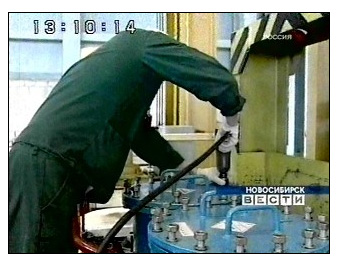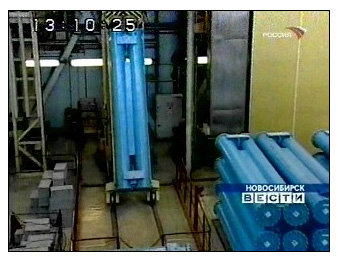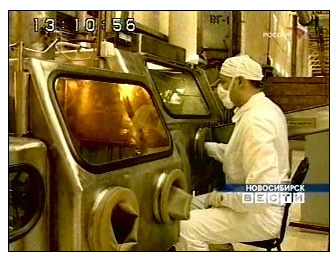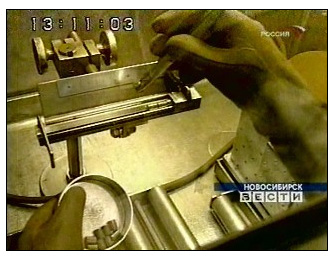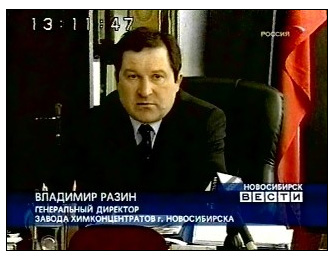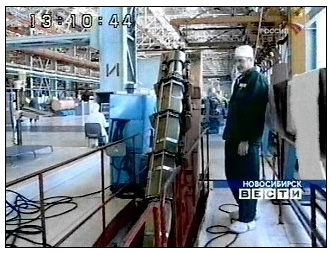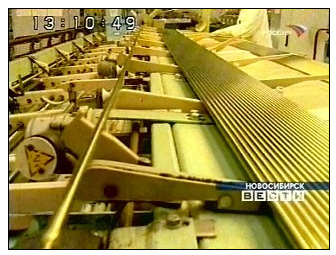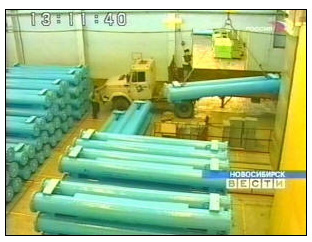Russian TV Shows Plant Producing Fuel for Iran's Bushehr
4 April 2005
Footage of the Novosibirsk production facilities (RTR, 1 April)
On 1 April, Moscow RTR TV showed a video of a Siberian plant producing fuel for Iran's Bushehr nuclear facility.
[Presenter] Russia is ready to ship to Iran the first consignment of nuclear fuel destined for Bushehr nuclear power plant under the terms of a contract signed in late January. It will take about 80 tonnes of the nuclear fuel to start off the reactor of this new power plant.
Dmitriy Ivanov reports from Novosibirsk.
[Correspondent] The lid on the capsule containing dangerous substance is being carefully sealed, marked and placed in the storage bay. The Novosibirsk chemical concentrates plant has produced another batch of nuclear fuel for Iran. It will be kept until ready for shipping to the Middle East, which will happen as soon as Bushehr reactor is commissioned. The nuclear fuel producers of Siberia think it will be in early autumn this year.
The first to be shipped to Iran are the so-called imitation rods -- fuel rods similar to these ones here and the same weight, only containing lead. According to specialists, they are needed for testing the power station's equipment. The nuclear fuel rod is packed with about 300 fuel elements -- "tvels", in nuclear jargon. They look like
3 meter-long metal cylinders. Each contains about 1.5 kg of radioactive uranium, pressed into tablets. The section where these tablets are being produced is considered the most dangerous at the plant because of high radiation levels. [Questions a factory employee who is packing tablets using built-in special gloves inside a sealed cabinet] The radiation inside there must be very high indeed?
[Employee] Yes, quite high. But this glass box and its stainless steel frame offer nearly complete protection from radiation.
[Correspondent] These nuclear tablets are just a step in the long production process. Precision and careful handling are essential at every stage of production. After the fuel rod is assembled, the finished product undergoes several stages of quality control. The Iranian contract is for about 80 tonnes of nuclear fuel. This is how much the plant needs to start off. Every year, a quarter of the fuel will be removed from the reactor and replaced with fresh one. Thus, Novosibirsk plant hopes for a long-term cooperation with Iran.
[Vladimir Razin, captioned as general director of Novosibirsk chemical concentrates plant] Under the contract, spent fuel will be returned to Russia -- for storage or for reprocessing. Both technologies are employed in world practice.
[Correspondent] However, spent nuclear fuel will not be returned to Russia that soon. Safety regulations dictate that it must first be kept in a so-called cooling pond for a minimum of 10 years. [Video shows the plant's production facilities]
[Description of Source: Moscow Russia TV RTR in Russian -- Large state-owned network broadcasting to almost all of Russia]
